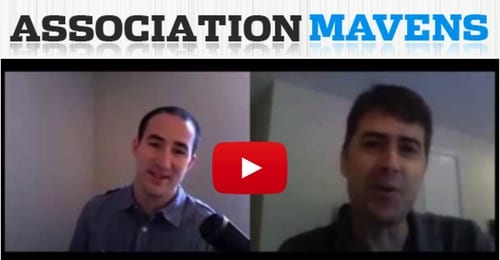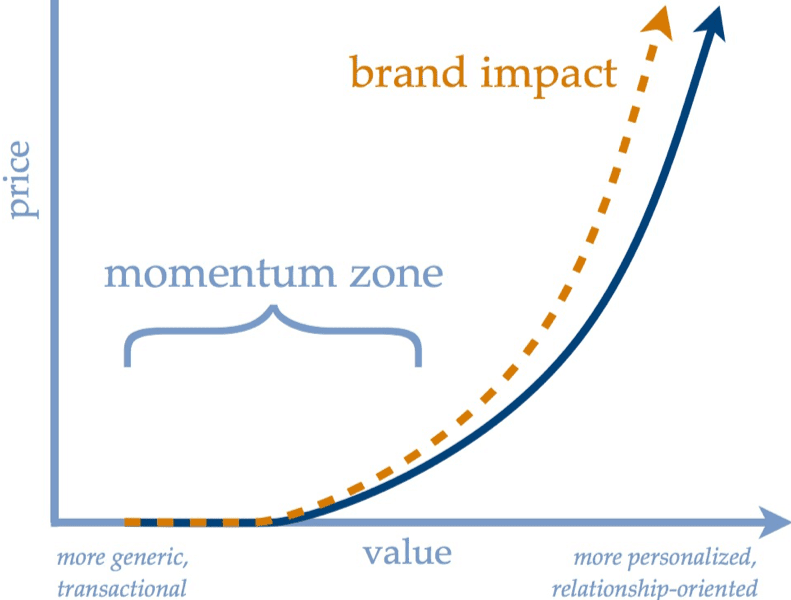
After a long pause, I am back with a new episode of the Learning Revolution podcast. In this one, the tables are turned, and instead of me interviewing someone, I get interviewed by Bryan Kelly of Association Mavens. We talk about how the Learning Revolution is impacting trade and professional associations, and in the process, highlight many of the key points from the book.
While associations are the focus of this episode, I’ll stress that the topics covered really apply to any of the audiences for the Leading the Learning Revolution – speakers, trainers, consultants, businesses interested in educational content marketing.
Finally, I’ll note that this is the final episode of the podcast. Having started it primarily as a way to publish the interviews I did for the book, I’ve decided that it has pretty much run its course. If you have not listened to earlier episodes, I certainly encourage you to do that. I also encourage you to subscribe (or stay subscribed), as I plan to announce a new podcast via this platform at some point in the not too distant future.
In the meantime, pop in those earbuds or slap on those head phones and listen in to the interview with Bryan Kelly.
Listen to the Podcast
Listen in below or subscribe on iTunes or Stitcher Radio.
Podcast: Play in new window | Download | iTunes | Stitcher Radio
Get the Show Notes
04:42 – Kick-off of Association Mavens and introduction of yours truly – Jeff Cobb – author of Leading the Learning Revolution and founder of Tagoras.
06:10 – Bryan asks a question based on Jeff’s presentation at the American Society of Association Executive’s (ASAE) Great Ideas conference. What are some of the key trends driving a shift in the lifelong learning market?
06:50 – Jeff highlights 3 out of the 5 trends covers in the book beginning with the massive shift in technology that has occurred over the past several years and what that now makes possible.
07:31 – A second factor is that work has changed dramatically. The average baby boomer between the ages of 18 and 42 has switched jobs 11.3 times – and that number is going up. Additionally, a third of workers in the U.S. – 42 million people – are now freelancers. These people – along with most of the millions who work in small businesses – are own their own when it comes to ongoing professional development. They don’t have corporate training departments.
08:20 – And then, finally, the nature of education has changed. The rise of MOOCs has been one key symptom of this shift. Khan Academy has been another one. Deloitte reports that the shelf life of the average college degree is now only about 5 years.
09:00 – All of these – technology changing, work changing, education changing – are converging to create a massive shift in the demand for and need for lifelong education. And wherever there is tremendous demand, wherever there is a tremendous shift, there is an opportunity for leadership.
09:30 – Bryan points out that so many associations are searching for ways to create more value, especially for rising generations. Seems like there is a whole new game as to how organizations can go about doing that.
10:05 – Jeff notes that expectations are shifting. Online education options are now an expectation. New ideas about what it means to learn are emerging. Traditional providers have to rethink how they are providing education both online and off.
10:50 – Why does the Learning Revolution matter – and, more specifically, what does it matter to associations?
11:00 – Any shift like this threatens existing structures while also creating tremendous opportunities. We’re at a point of inflection right now.
11:50 – If you are a traditional provider in “the other 50 years” doing the standard seminars and conferences – the stand and deliver presentations – suddenly you are finding a lot of competition, both from big brands and from small entrepreneurs. Membership models are already under pressure, so if you can’t figure out how you are going to deliver new value, you are going to start seeing yourself slip.
12:55 – Bryan notes that what’s out there is amazing. He highlights Derek Halpern’s efforts at Social Triggers (for free!) and asks, “Why isn’t the American Marketing Association doing this?”
13:35 – Jeff highlights the example of Social Media Examiner in a similar light – and the whole virtual conference business model.
14:12 – Jeff notes that most of the entrepreneurs – like Stelzner and Halpern – are probably not thinking of themselves as lifelong learning providers, but they are.
14:22 – Bryan notes again that, in the end, it’s all about the value. Getting stuff that it is hard to find anywhere else. He see this as a tremendous opportunity for associations.
15:15 – Three things have to change for associations to take full advantage of the opportunity – (1) they have to become more entrepreneurial, (2) they have to get into the “talent game” and learn to really cultivate their bench and develop new/better relationships with subject matter experts, and (3) they are going to have to get better about creating and demonstrating actual impact from the education they are delivering. (Listen in for greater detail on each of these points.)
17:45 – Bryan highlights how the intersection of a number of factors/skill sets play into the Learning Revolution: instructional design, how people learn best in a particular context, presentation skills, entrepreneurial thinking.
18:50 – Bryan asks for some association example. Jeff provides a simple example – Ned Campbell at the Florida Institute of CPAs listening to his market – and a more complex example – the efforts of the American Chemical Society with Sci-Mind.
22:20 – So, bottom line – says Bryan – is that if you are interested in being a Revolutionary, you need to get an HD cam, screen recording software, Webinar software, and a copy of Leading the Learning Revolution. (Along these lines, be sure to check out the free Learning Revolutionary’s Toolbox.)
23:03 – Episode wrap-up. Thanks for listening. I encourage you to subscribe (or stay subscribed).
***
As always, if you like the Learning Revolution podcast, I’d be sincerely grateful if you would do a rating and/or brief review on Apple Podcasts. (Once you reach the Apple Podcasts Web page, click “View in iTunes” and then select the “Ratings and Reviews” tab.)
- I encourage you to browse past Learning Revolution episodes.
And please tell others about the Learning Revolution. Thanks!
Podcast: Play in new window | Download | iTunes | Stitcher Radio
The theme music for Learning Revolution is The Information Age by Anthony Fiumano, available on the Podsafe Music Network.


